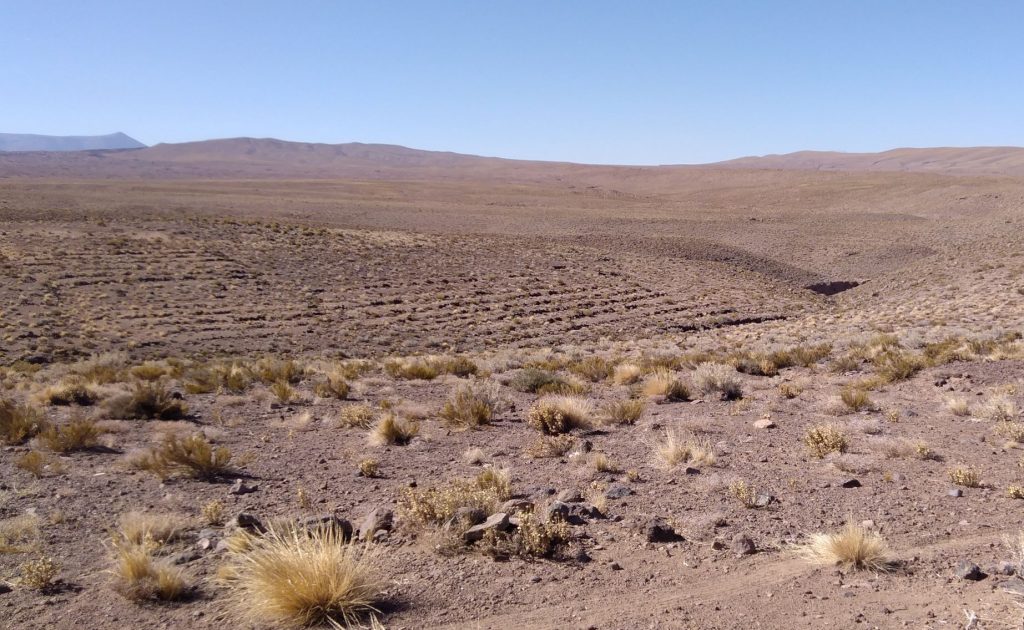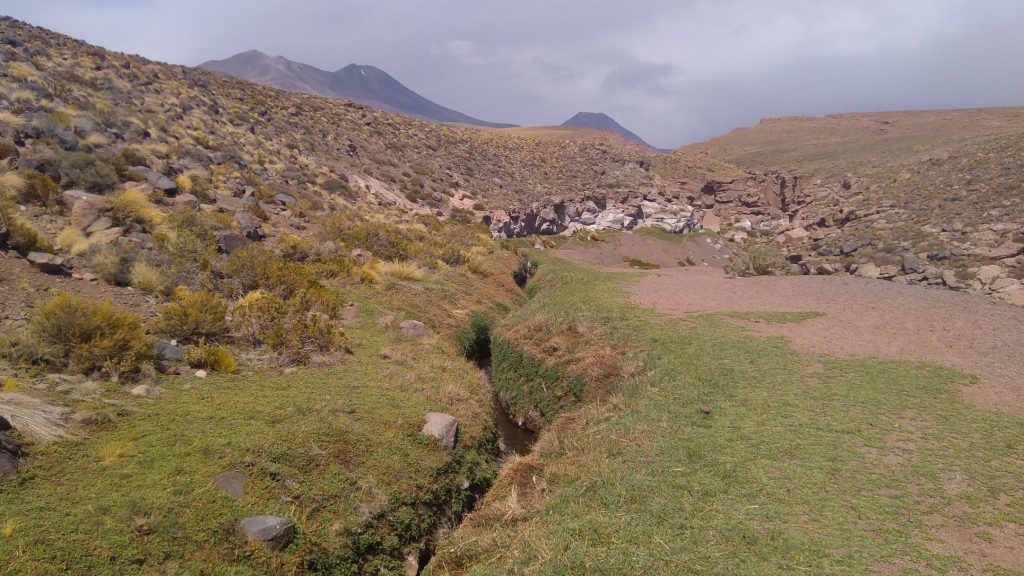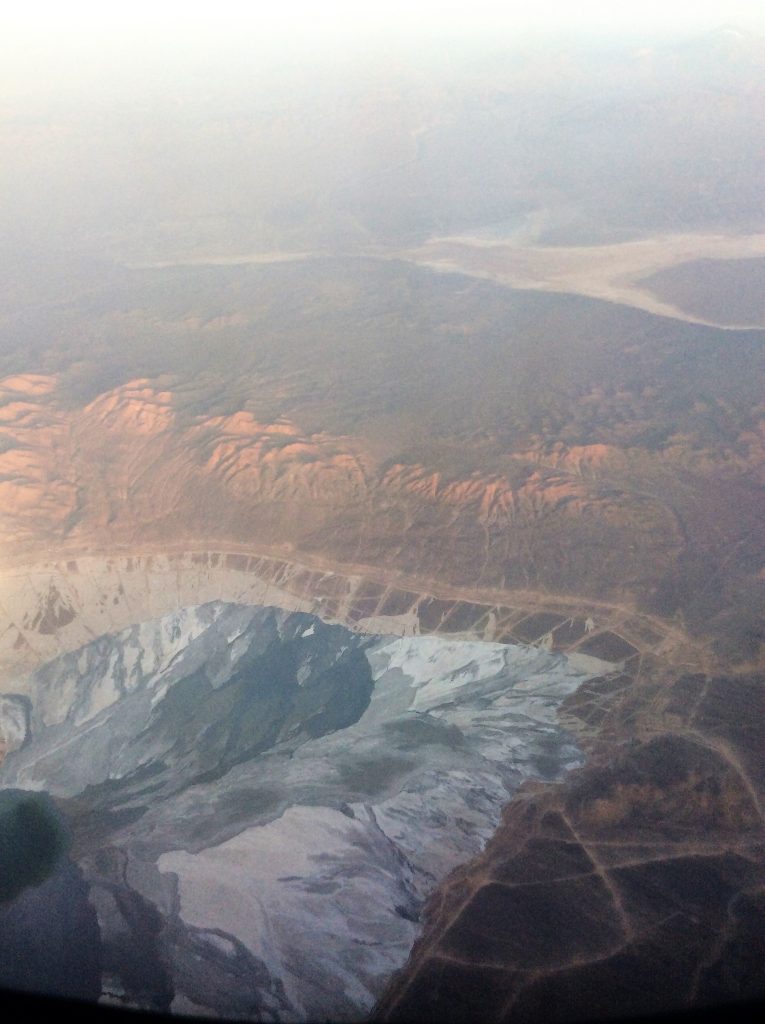Chilean Futures
2022-12-18
Cornelius Holtorf visited colleagues at the Instituto de Investigaciones Arqueológicas y Museo at the Universidad Católica del Norte in San Pedro de Atacama, Chile.
Together with a group of indigenous community members interested in utilising their natural resources and supporting crucial land claims, we went into the field to survey precolonial (Inca) remains of irrigated terraces at more than 4,000m altitude. Water supply is still of great importance for any kind of agriculture in this desert, one of the driest places on Earth (although a little cloudy on the day of our visit!).
 Inca irrigated terraces for agriculture
Inca irrigated terraces for agriculture
As a ‘future archaeologist’ I am interested, on the one hand, in applying archaeology to improve people’s lives in the near (short) future. This can mean strengthening claims to land entitlements after 2024 when the current terms will expire.
Modern water channel
On the other hand, the specific circumstances also evoke a more distant (long) future: indigenous communities have been negotiating considerable and long-lasting monetary compensation from mining companies operating on their land or nearby and affecting their water supply and living conditions. The lithium being mined, in turn, is essential for the current green transition to carbon-neutral and sustainable technologies (such es electric cars) elsewhere in the world.
Mining in northern Chile
In such complex situations, what we need to make the best decisions is enhanced futures literacy: how can we escape presentism and imagine a wide range of future possibilities while making the best decisions for living people and their descendants, especially when they are poor and marginalised?













[…] The new funding for this and a number of additional smaller projects, means that the Climate Heritage Network is…
[…] Chair on Heritage Futures « Culture, cultural heritage and COP26 […]
[…] mer på Unescoprofessurens blogg http://blogg.lnu.se/unesco/?p=1061 Besök Öland 2050! […]